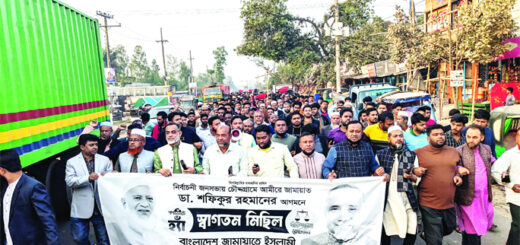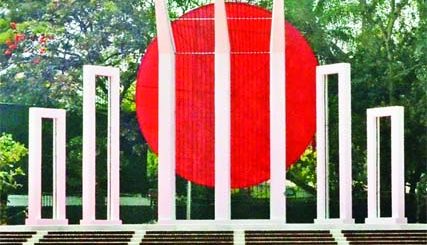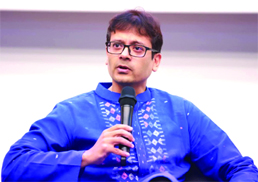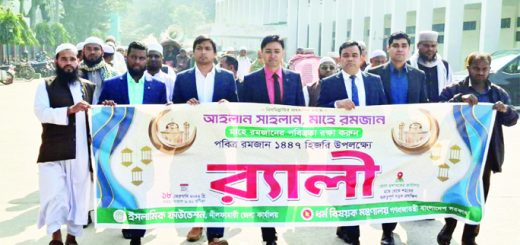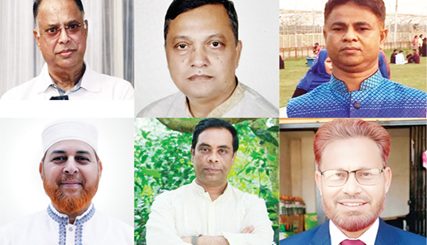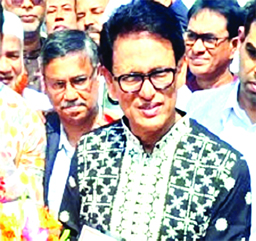Rohingyas uncertain future amidst ongoing struggles
Staff Reporter :
The plight of the Rohingya Muslims, driven out of Myanmar by a brutal military campaign in 2017, remains a stark reminder of unresolved human suffering.
Nearly seven years on, their future remains uncertain in the congested environment of Cox’s Bazar, with repatriation efforts stalled and international support waning.
On the occasion of World Refugee Day, local and international experts are advocating for the formal recognition of the Rohingyas as’refugees’ by the government of Bangladesh.
They suggest following the Indian example of recognising the 1971 refugees without ratifying the Geneva Convention. The experts argue that repatriation is the only viable solution to the Rohingya crisis.
The Coast Foundation and Cox’s Bazar CSO-NGO Forum (CCNF) jointly organised an online international seminar to mark World Refugee Day. Speakers underscored that granting formal recognition as refugees would alleviate many challenges faced by the Rohingya.
Bangladesh’s generous hosting of over a million Rohingyas underscores the urgent need for formal recognition to address their plight effectively.
National and international experts on refugees participated in the online seminar, chaired by Shireen Haque from Naripokkho and moderated by Rezaul Karim Chowdhury from the Coast Foundation.
During his keynote presentation, Barkat Ullah Maruf from the COAST Foundation highlighted that Rohingya children now have access to education. However, he pointed out a significant challenge: the lack of interest in education due to the absence of internationally recognised certificates.
He emphasised that if Rohingya refugees possessed travel documents, they wouldn’t risk perilous journeys across the Andaman Sea to reach other countries illegally. Instead, they could pursue legal avenues for employment abroad, enabling them to relocate with their families safely.
Klaus Dick Nielsen from APRRN emphasised the importance of international agencies providing funding directly to local NGOs in Cox’s Bazar for Rohingya response efforts.
Highlighting the ongoing persecution of Rohingya in Maungdaw and Buthidaung, Hafsar Tamizuddin, Secretary General of APRRN and a Rohingya born in Myanmar now living in New Zealand, stressed the need for transparency in discussions concerning the Rohingya with other countries.
John Quinley of Fortify Rights, based in Myanmar, emphasised the rights of assembly and freedom of expression as crucial for refugees, often neglected.
He affirmed that families in Rohingya camps should have the right to relocate elsewhere to escape security risks.
Gawhar Naeem Wahra from the Disaster Forum noted that during the 1971 Bangladesh Liberation War, around ten million Bangladeshis sought refuge in India, which recognised them as refugees without ratifying the Geneva Convention.
He suggested Bangladesh could similarly recognise Rohingya as refugees, citing benefits such as legal remittance of funds through banks, which will boost Bangladesh’s foreign reserves.
Asif Munir, an expert on refugees and immigration, pointed out a prevailing negative perception among law enforcement agencies regarding Rohingyas, often viewing them through a criminal lens.
He stressed that addressing the ongoing conflicts within Rohingya camps cannot be solely managed by the APBN (Armed Police Battalion).
He advocated for a disarmament process involving collaboration with other security forces, potentially necessitating intervention from the Ministry of Defence.
Shireen Haque of Naripokkho observed a shift in focus among Rohingya refugees: while in 2017 they recounted the torture endured in Myanmar, now their narratives predominantly centre around the ongoing hardships within the camps, underscoring the escalating crisis.
Rezaul Karim Chowdhury of the COAST Foundation emphasises that the only viable solution to the ongoing Rohingya crisis is repatriation.
He called upon international agencies to take proactive steps towards meaningful initiatives for repatriation, highlighting the potential role of the Rohingya diaspora community in this process.

